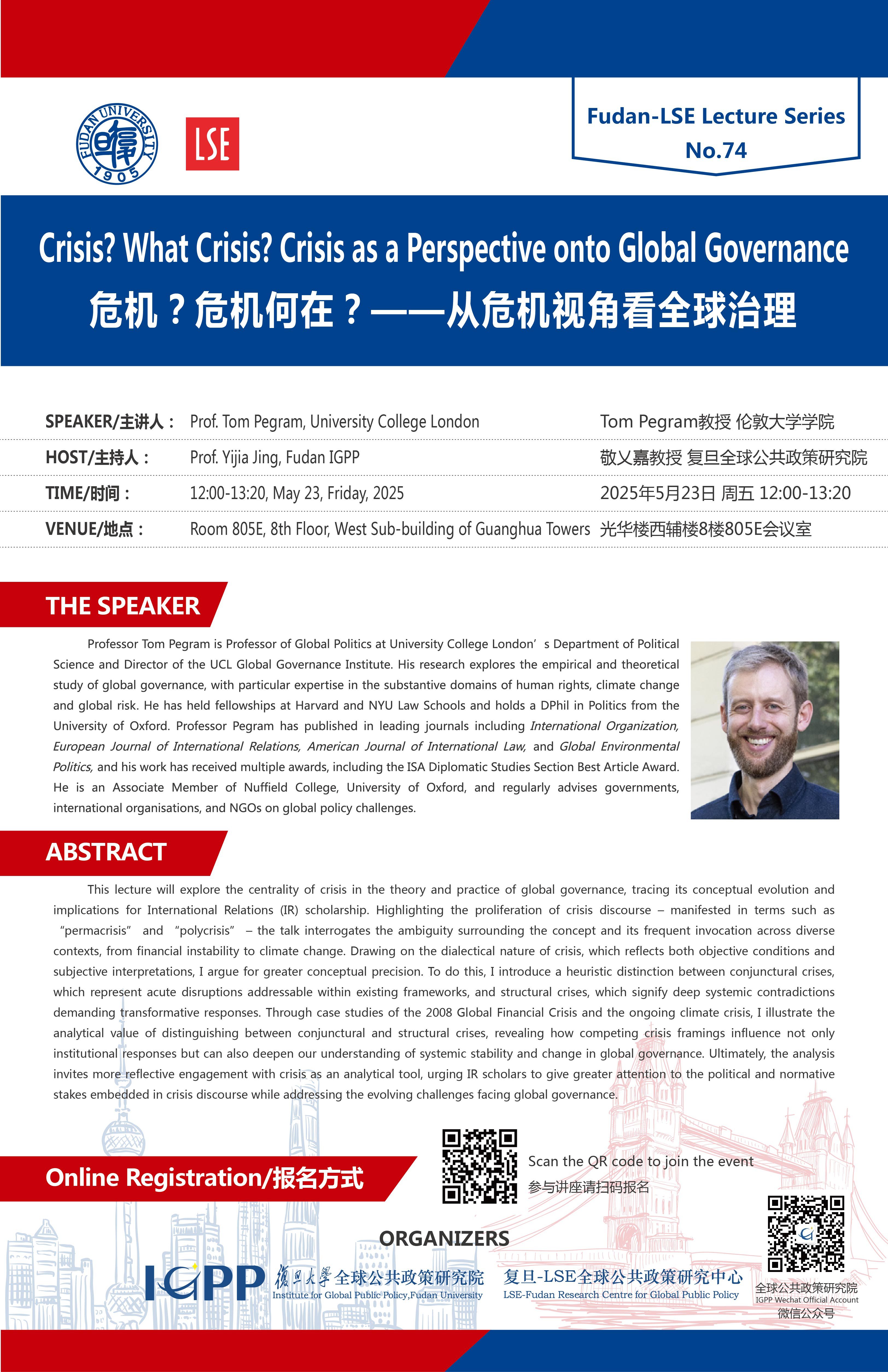
Fudan-LSE Lecture Series No.74
Title:
Crisis? What Crisis? Crisis as a Perspective onto Global Governance
Speaker:
Prof. Tom Pegram, University College London
Host:
Prof. Yijia Jing, Fudan IGPP
Time:
12:00-13:20, May 23, Friday, 2025
Venue:
Room 805E, 8th Floor, West Sub-building of Guanghua Towers
https://www.wjx.cn/vm/exSm8kk.aspx#

The Speaker:

Professor Tom Pegram is Professor of Global Politics at University College London’s Department of Political Science and Director of the UCL Global Governance Institute. His research explores the empirical and theoretical study of global governance, with particular expertise in the substantive domains of human rights, climate change and global risk. He has held fellowships at Harvard and NYU Law Schools and holds a DPhil in Politics from the University of Oxford. Professor Pegram has published in leading journals including International Organization, European Journal of International Relations, American Journal of International Law, and Global Environmental Politics, and his work has received multiple awards, including the ISA Diplomatic Studies Section Best Article Award. He is an Associate Member of Nuffield College, University of Oxford, and regularly advises governments, international organisations, and NGOs on global policy challenges.
This lecture will explore the centrality of crisis in the theory and practice of global governance, tracing its conceptual evolution and implications for International Relations (IR) scholarship. Highlighting the proliferation of crisis discourse – manifested in terms such as “permacrisis” and “polycrisis” – the talk interrogates the ambiguity surrounding the concept and its frequent invocation across diverse contexts, from financial instability to climate change. Drawing on the dialectical nature of crisis, which reflects both objective conditions and subjective interpretations, I argue for greater conceptual precision. To do this, I introduce a heuristic distinction between conjunctural crises, which represent acute disruptions addressable within existing frameworks, and structural crises, which signify deep systemic contradictions demanding transformative responses. Through case studies of the 2008 Global Financial Crisis and the ongoing climate crisis, I illustrate the analytical value of distinguishing between conjunctural and structural crises, revealing how competing crisis framings influence not only institutional responses but can also deepen our understanding of systemic stability and change in global governance. Ultimately, the analysis invites more reflective engagement with crisis as an analytical tool, urging IR scholars to give greater attention to the political and normative stakes embedded in crisis discourse while addressing the evolving challenges facing global governance.





